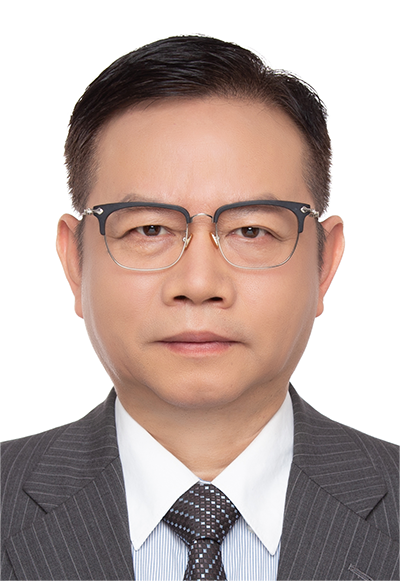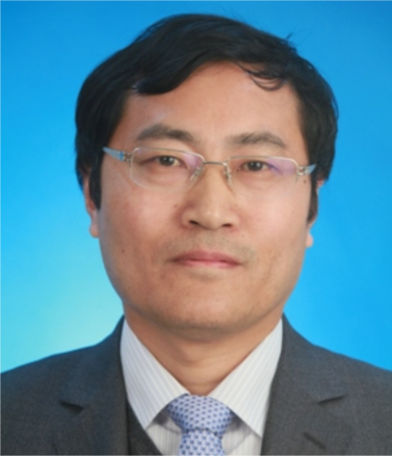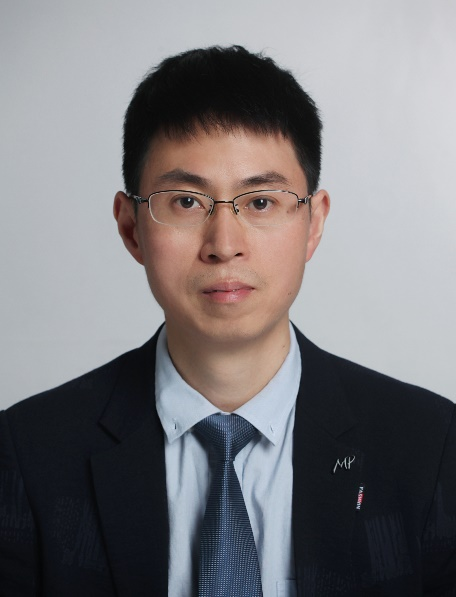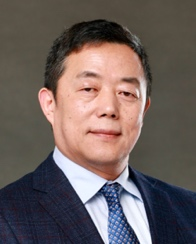
Keynote Speakers
SPEAKERS |
Speakers (ICEPG 2023)

Prof. Feiyong Chen, Shandong Jianzhu University, China(EAJ Foreign Fellow/Dean)
陈飞勇教授,山东建筑大学(日本工程院外籍院士/院长)
Profile: Feiyong Chen received his PhD in Civil Engineering from Tokyo Institute of Technology, Japan in 1996, was elected as a Foreign Associate of The Engineering Academy of Japanese in 2018, and was elected as a Pearl River Scholar of Guangdong Province in 2019. He is currently the Dean, Professor and Doctoral Supervisor of the Institute of Resource and Environmental Innovation, Shandong Jianzhu University. He has long been engaged in scientific research and engineering practice in the fields of water pollution control and prevention, water environment ecological planning and restoration , and has organized or presided over more than 100 major engineering scientific and technological consultations, research and design in more than 20 countries including China and Japan, creating economic benefits of more than 1 billion yuan, especially in Japan's rivers and lakes, reservoirs water purification and eutrophication countermeasures and other engineering projects, and won the Japan Ministry of Land, Infrastructure, Transport and Tourism Excellent Project Award 7 times, Excellent Technical Personnel Award 1 time.
Speech Title:Water environment comprehensive regulation and ecological restoration
Abstracts: The report "Water environment comprehensive regulation and ecological restoration" is based on the current water environment background of water disaster intensification, water resource shortage, water environment pollution, water ecological degradation, water landscape destruction. Based on the relationship between city and water, the comprehensive water environment regulation strategy is proposed from different dimensions such as urban pipe network construction, urban water body treatment and watershed water body treatment, which would promote the development of urban water environment comprehensive treatment from a single flood control and drainage, landscape beautification, to a multi-dimensional integration of security, ecology, and economy. The report highlights the important role of ecological restoration in the comprehensive management of water environment. With ecological concepts, methods and technologies as the core, advanced technologies such as green road, ecological floating island and ecological slope protection are comprehensively applied to create diversified ecological environment types, establish multi-level stable biological populations and structures, and achieve sustainable development of water environment. Finally, with the actual case as evidence, Guangfo New World Manor and Dongguan Qingxi River as typical urban community and watershed governance models, respectively, to explore their comprehensive water pollution treatment strategies and water environment comprehensive governance models, providing reference and guidance for future urban water environment comprehensive governance.

Prof. Yinguang Chen, Tongji University, China
陈银广教授,同济大学(国家杰出青年科学基金获得者)
Profile: Dr. Chen Yinguang is a professor of the School of Environment of Tongji University and a winner of the National Science Fund for Distinguished Young Scholars. His research field is pollution control and valorization. The current research focus is on the theory of low-carbon and low energy consumption treatment and control of environmental pollutants, and the methods and technologies for valorization of organic pollutants. He has published over 30 academic papers in Environmental Science & Technology as a correspondence or first author, with each paper being cited an average of 130 times.
Speech Title:The direct effect of elevated carbon dioxide on denitrification in sediments and its mechanism
Abstracts: The CO2 concentration in soil microenvironment and Carbon Capture and Storage (CCS) site was 10 to 100 folds of the atmospheric one. Therefore, the increase in carbon dioxide will bring challenges to the living organisms on Earth. Microbial denitrification is an important step in reducing nitrate to nitrogen and maintaining nitrogen balance in the nitrogen cycle. However, the direct effect of elevated CO2 on denitrifying organisms and denitrification processes has seldom been reported. This presentation reported the direct impact of elevated CO2 concentration on denitrification in sediments and explored its mechanism. It was observed that the microbial denitrification in estuarine sediments was inhibited with the increase of CO2, but intermediates (NO2--N and N2O-N) were accumulated. Further investigation with P. denitrificans as model denitrifying bacteria showed that CO2 significantly inhibited bacterial growth and cell viability. Also, the transmembrane transport of carbon source (acetate) was inhibited by decreasing the driving force for acetate transport, which reduced the generation of NADH. In addition, the increase of CO2 inhibited nitrate metabolism and caused the accumulations of NO2--N and N2O-N, which was attributed to the suppression of CO2 on electron transport and consumption proved by the down-regulated expression of proteins and gene of key proteins, such as flavoprotein, succinate dehydrogenase, cytochrome, nitrate reductase (NAR), nitrite reductase (NIR), nitric oxide reductase (NOR), and nitrous oxide reductase (N2OR). These results provided new insight into the effects of CO2 on bio-denitrification.

Prof. Dongzhi Chen, Zhejiang Ocean University, China(Vice Dean)
陈东之,浙江海洋大学(副院长)
Profile: Dr. Dongzhi Chen, Professor and doctoral supervisor at Zhejiang Ocean University. Selected as a top young talent in the “Thousand Talents Program” of Zhejiang Province, and one of the first batch of innovative leading talents among universities of Zhejiang Province. Engaged in the field of waste gas bio-purification for more than 15 years, including the development of functional materials for efficient biodegradation, the exploitation of new treatment technology, and the intensification of mass transfer-reaction processes for waste gases purification. Presided over several major research projects, such as one project under the National High-tech R&D Program (863 Program) on “Biological purification technology and engineering demonstration for waste gases from pharmaceutical industry containing chlorine and sulfur ”, five projects under the National Natural Science Foundation of China, two sub-projects under the National Key R&D Program of China, one project under the Lingyan Program of Zhejiang Province, and three major horizontal projects with over one million funding for each. Prof. Dongzhi Chen has published more than 100 research papers in mainstream academic journals both domestically and internationally, such as Environ. Sci. Technol., Water Res., Appl. Catal. B-Environ., Chem. Eng. J., and Environ. Sci.(in Chinese), of which 72 papers are SCI indexed. Granted with 36 invention patents, including 1 US patent. Won the Special Prize for National Business S&T Progress Award by China General Chamber of Commerce in 2019 and the Second Prize for Science and Technology of Environmental Protection by Chinese Society for Environmental Sciences in 2022 as the first principal investigator, and the First Prize for College S&T Progress Award by Ministry of Education of China in 2020. Served as Deputy Director of the Key Laboratory of Environmental Pollution Control in Petrochemical Industry of Zhejiang Province, a member of the Technical Forecasting Expert Group in the Field of Environmental Biology in the National Medium-and Long-Term Science and Technology Development Plan, and honorary researcher at the National Engineering Laboratory for VOCs Pollution Control Materials and Technologies.
Speech Title:Key technologies in biological purification of VOCs gases and their full-scale applications
Abstracts: Volatile organic compounds (VOCs) in the ambient air play an important role in the formation of particulate matter and ozone, thereby affecting air quality. Industrial waste gases contribute largely to the VOCs emissions, and different end-of-pipe methods have been developed to control such emissions. Among these methods, biotechnology is suitable for treating low-concentration VOCs with almost no secondary pollutants generated. However, the application of biotechnology may be limited by some inherent properties of different VOCs, such as hydrophobicity and poor biodegradability. In this presentation, we share our research progress on key technologies for improving VOCs removal using biotechnologies, including development of bioactive functional materials, enhancement of mass transfer, use of coupled chemical-biological process and establishment of novel bioelectrochemical systems.

Prof. Guangming Li, Tongji University, China
李光明教授,同济大学
Profile: Pro.Guangming Li, professor and doctoral supervisor at the School of Environmental Science and Engineering, Tongji University. Engaged in water pollution control and recycling, wastes management and recovery technologies such as urban solid waste, electronic waste, kitchen and organic waste, waste tires and plastics, and hazardous wastes, as well as urban ecological environment and low-carbon sustainable development technology and innovation planning research.He presided over and participated in more than ten major science and technology research projects under the National "Tenth Five Year Plan" 863, the Ministry of Science and Technology Support Plan, the National Natural Science Foundation of China, and local governments. Since 2004, I have been involved in the formulation of medium and long-term scientific and technological development plans in Shanghai, serving as the leader of the Ecological Shanghai Special Group, participating in the formulation of Shanghai's "11th Five Year Plan", "12th Five Year Plan", "13th Five Year Plan", and "14th Five Year Plan" scientific and technological development plans, and serving as the leader of the Ecological Shanghai or People's Livelihood Special Group; Participate in the special planning, implementation management, promotion, and application of the World Expo Science and Technology Action Plan. We have conducted exchanges and cooperation with the German University of Technology Berlin, the University of East Anglia in the UK, Japan Construction Engineering Corporation, the Italian Federation for Waste Plastic Recycling, and Thailand Green Rubber.Served as the Deputy Director of the Department of Chemistry (1996-1999), Executive Deputy Director of the Training Center of Higher Technical College (2000-2001), and Deputy Dean of the School of Environmental Science and Engineering (2003-2010), responsible for teaching, research, training, and graduate management work. Currently serving as the Deputy Director of the Science and Technology Department of Tongji University (2010 present), responsible for industry university research cooperation and the service and management of scientific and technological achievements. Published over 200 research papers in mainstream academic journals both domestically and internationally in this field of expertise; Editor in chief/co editor of 10 academic monographs and textbooks; Apply for more than 10 authorized patents.
Speech Title:Solution for waste tire
Abstracts: It is introduced that 1) waste tire is the worldwide issue, 2) pyrolysis is a suitable for treating waste tire, and 3) modification of pyrolytic carbon black can get better utilization of pyrolytic carbon black.

Prof. Mohammed JK Bashir, University Tunku Abdul Rahman, Malaysia
Profile: Prof Bashir graduated from Universiti Sains Malaysia in 2011 with a keen interest in the field of Environmental engineering and sustainable environmental management and technology (including Sustainable environment, solid waste management and treatment technologies, wastewater treatment, water quality, waste utilisation, waste to energy, etc). Currently, he is serving as a Professor and leading the department of Environmental Engineering at University Tunku Abdul Rahman Malaysia. He has published more than 250 articles in prestigious high impact factor journals such as Bioresource Technology, Journal of Cleaner Production, Journal of Environmental Management, Waste Management, Chemosphere, Total Science of Environment, Renewable Energy, Desalination, Journal of Chemical Engineering, Process safety and Environmental Protection, Environmental Technology, Water Science and Technology, and many others. Today his h index is 37 with a total citation of 4970. He Has received 20 national and international awards.
Speech Title:Unlocking Tomorrow's Clean Water: Challenges and Promising Pathways in Emerging Contaminant Management
Abstracts: Microplastic, pesticides, personal care items, cosmetics, and medications are just a few of the various compounds that fall under the heading of emerging contaminants (ECs). These ECs, which pose serious risks to the environment and public health, have penetrated groundwater, surface water, and wastewater systems at alarming rates as a result of booming enterprises. Water sources have been contaminated as a result of agricultural practices that extensively rely on pesticides and herbicides, accumulating dangerous substances in aquatic species. Similar to the increased usage of cosmetics and personal care items containing synthetic substances, ECs are now found in drinking water supplies. Additionally, it has come to light that pharmaceuticals significantly contribute to EC pollution. This chemical buildup exerts adverse effects on aquatic ecosystems, ranging from disruptions in reproductive systems to behavioral alterations. Moreover, human exposure to ECs has been linked to various health issues, including cancer, reproductive disorders, and developmental abnormalities. Consequently, urgent measures are imperative to curtail EC release into the environment through enhanced regulation and management practices.The ability to partially remove EC has been demonstrated using conventional wastewater treatment techniques such as activated sludge, membrane filtration, coagulation, adsorption, and ozonation. With the goal of recovering valuable molecules from wastewater, groundwater, and surface water, recent research has focused on creating effective methods for locating and eliminating these pollutants from wastewater. However, detailed knowledge of many of these new contaminants is still lacking, and the majority are currently unregulated.This study focuses on innovative remediation strategies capable of efficiently eliminating these contaminants from polluted sites. Promising methods include phytoremediation, bioremediation, and nanotechnology-based approaches. In conclusion, this research underscores the necessity of ongoing investigations into novel approaches to identify and mitigate EC risks, safeguarding both human health and the environment.